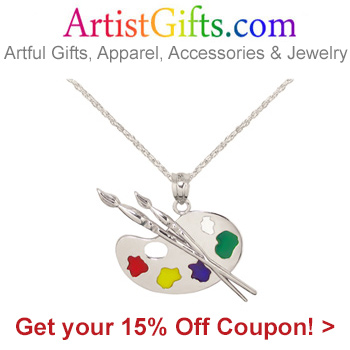by Carolyn Edlund
Wholesaling your art or handmade goods? Here’s how to deal with the “exclusivity” issue.

Photo courtesy Buyers Market of American Craft.
If you are a creative entrepreneur with a handmade or manufactured line of products, you may be doing some wholesaling, or selling to “the trade.” When you start wholesaling your line, the market is wide open for your products. You might attend a national trade show and start finding buyers from all over the country, or the world. Any account is fair game, and you should work with as many customers as you choose.
If your market is narrower, such as when you are approaching retailers locally, or if you have a significant presence in one city, for instance, you might start hearing some rumblings about exclusivity. Your customers may not be pleased to know that your work is being sold across the street from their store location. This is a legitimate concern, because stores generally like to have product lines that distinguish them from others and make them a destination for shoppers. Sometimes store owners feel that their competition is going after their product lines to copy their success.
Should you offer exclusivity to certain accounts, and how do you do it? This is a choice many manufacturers make, including small manufacturers (that’s you!) and can be advantageous. Consider the following factors:
- Rather than risk losing a great account, you might want to offer them exclusivity, such as a zipcode area or section of town. Some prospective customers will ask you this up front when considering whether they want to buy from you. Don’t give these terms easily. Consider what business you will be losing. How much will they buy from you? Is it worth it to turn down other accounts for this one? You may want to ask for a large enough order to justify these terms.
- You could sell to several retailers in one area, but offer them exclusivity on different collections in your line. This can work if you have an extensive product offering, especially if the look of the collections is quite distinctive, or one is significantly more expensive than the other.
- Consider giving exclusivity for a limited period of time. You can then evaluate whether this agreement is working for you and for your account without over-promising.
- If you work with sales reps, keep communication open about any exclusivity that you are giving to accounts. Your reps may also want to offer exclusives to customers, but should let you know first. Be up front with your accounts to head off mistakes.
- When you are selling to wholesale buyers who have more than one retail store, let them know if you have given other accounts exclusives near any of their locations.
- What if an account who has exclusivity isn’t buying enough of your product line to justify it? Be honest with them, and let them know if you feel you should no longer honor that exclusive because of volume. Try to resolve the issue – they may agree to purchase an agreed amount of your line to keep their exclusivity.
- Giving exclusivity can bring headaches, and generally should be used sparingly to land and keep lucrative wholesale accounts if necessary. Before offering this perk, make sure you consider the pros and cons for your business.


Speak Your Mind